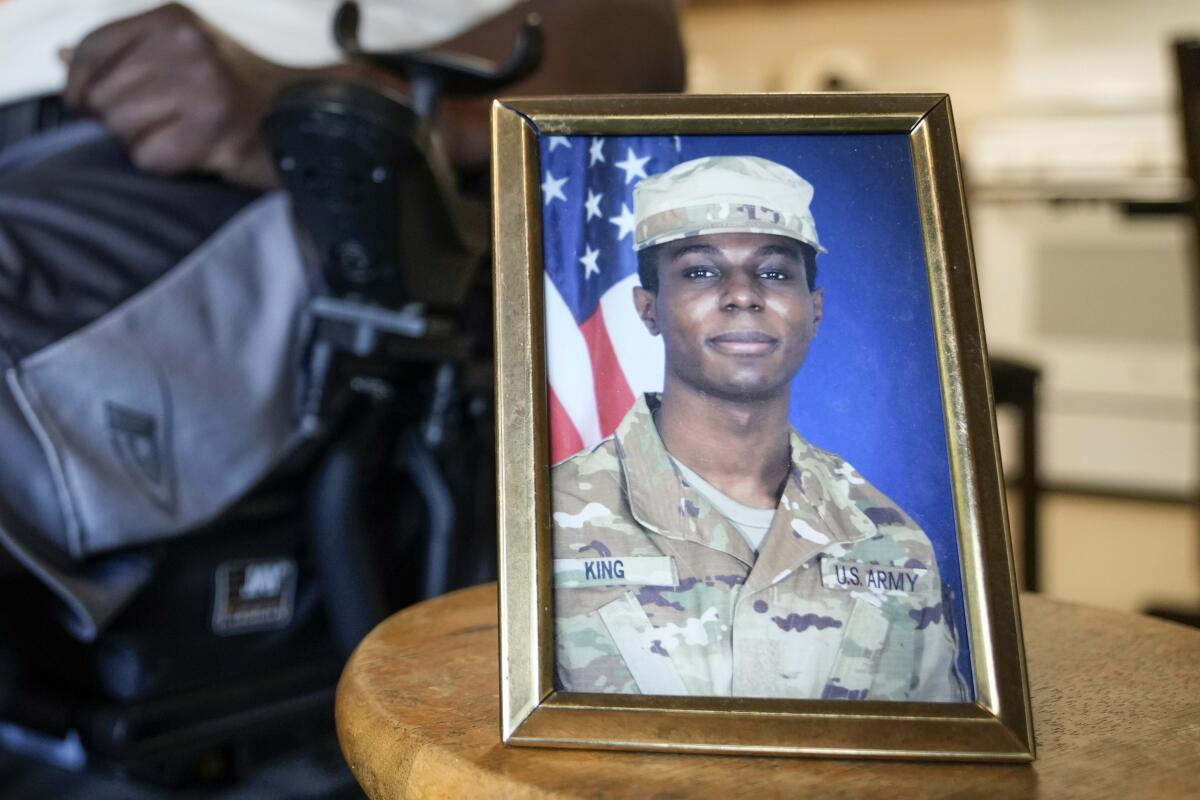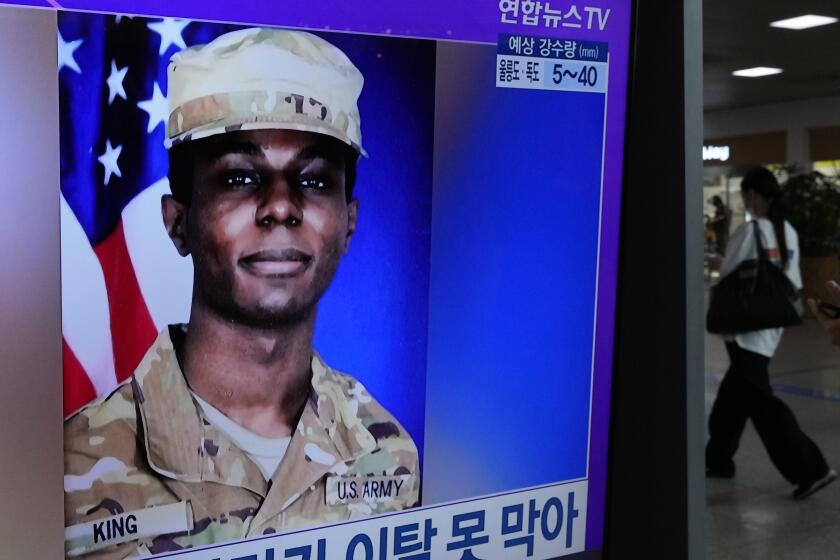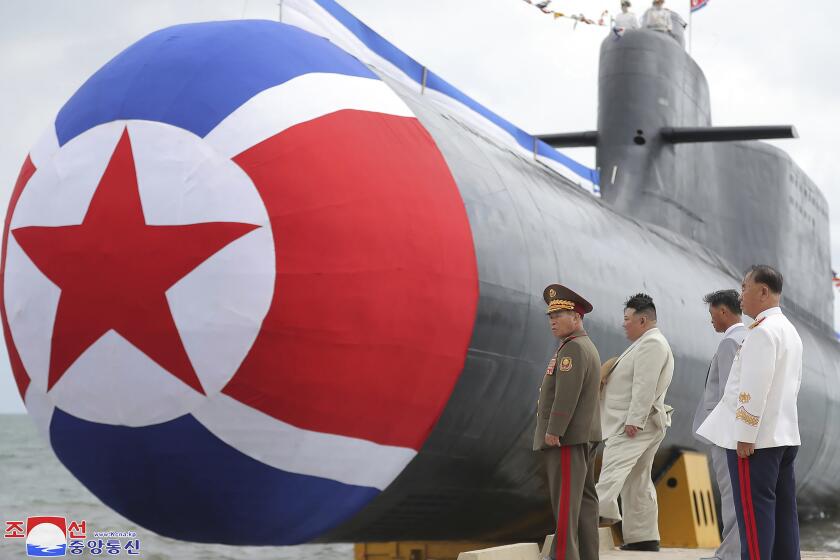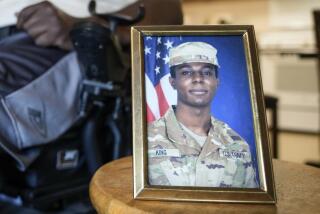U.S. soldier who crossed into North Korea two months ago arrives back in Texas

WASHINGTON — The American soldier who sprinted into North Korea across the heavily fortified border between the Koreas more than two months ago was whisked to a Texas Army base Thursday for medical checks and interviews after his return to the U.S., according to the Pentagon.
North Korea abruptly announced Wednesday that it would expel Pvt. Travis King. His return was organized with the help of ally Sweden and China, according to the White House.
While officials have said King, 23, is in good health and the immediate focus will be on caring for him and reintegrating him into U.S. society, his troubles are likely far from over.
King, who had served in South Korea, ran into the North while on a civilian tour of a border village July 18, becoming the first American confirmed to be detained in the isolated nation in nearly five years. At the time, he was supposed to be heading to Ft. Bliss, Texas, following his release from a prison in South Korea where he had been held for an assault conviction.
He has been declared AWOL from the Army. In many cases, someone who is AWOL for more than a month can automatically be considered a deserter.
Punishment for going AWOL or desertion can vary, and it depends in part on whether the service member voluntarily returned or was apprehended. King’s handover by the North Koreans makes that more complicated.
It’s North Korea’s first confirmation of detention of Private 2nd Class Travis King, who in July became the first American detained in the North in nearly five years.
King arrived in the early hours of Thursday at Lackland Air Force Base in San Antonio and was taken to Brooke Army Medical Center, according to the Pentagon. He will undergo an array of medical and psychological assessments and debriefings, and he will also get a chance to meet with family.
Video aired Thursday by a Texas news station appeared to show King walking off a plane in San Antonio. Dressed in a dark top and pants, he could be seen speaking briefly with people waiting on the tarmac. He shook hands with one before being led into a building.
Many questions remain about King’s case, including why he fled in the first place and why the North — which has tense relations with Washington over Pyongyang’s nuclear program, support for Russia’s war in Ukraine and other issues — agreed to turn him over.
North Korea says its new submarine has nuclear-attack capabilities after years of development, but South Korean officials are skeptical of the claim.
The White House has not addressed North Korean state media reports that King fled because of his dismay about racial discrimination and inequality in the military and U.S. society.
The North’s official Korean Central News Agency reported that King made such complaints, but verifying that is impossible.
On Wednesday, Swedish officials took King to the North Korea-Chinese border, where he was met by U.S. Ambassador to China Nicholas Burns, the Swedish ambassador to China and at least one U.S. Defense Department official.
Start your day right
Sign up for Essential California for the L.A. Times biggest news, features and recommendations in your inbox six days a week.
You may occasionally receive promotional content from the Los Angeles Times.
He was then flown to a U.S. military base in South Korea before being returned to the U.S.
His detention was relatively short by North Korean standards.
Several recent American detainees had been held for more than a year — 17 months in the case of Otto Warmbier, a college student who was arrested during a group tour. Warmbier was in a coma when he was deported, and later died.
North Korea has often been accused of using American detainees as bargaining chips, and there had also been speculation that the North would try to maximize the propaganda value of a U.S. soldier.
But analysts say King’s legal troubles could have limited his propaganda value, and Biden administration officials insisted that they provided no concessions to North Korea to secure his release.
More to Read
Sign up for Essential California
The most important California stories and recommendations in your inbox every morning.
You may occasionally receive promotional content from the Los Angeles Times.












